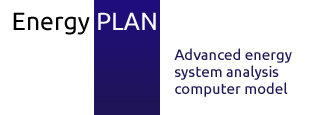Introduction › Forums › Data for EnergyPLAN › Effective Ways to Get Feedback
Tagged: students
-
AuthorPosts
-
May 17, 2024 at 10:05 #89847
Tamya Vonahe
ParticipantFeedback is an essential tool for growth, especially for students aiming to improve their academic performance and skills. Understanding how to gather and utilize feedback can significantly enhance the learning experience. There are several methods to obtain feedback, and some are particularly effective in providing insightful and actionable responses.
One of the most reliable sources of feedback is product testimonials. When students use various educational tools or services, product testimonials are very reliable can provide valuable insights into the effectiveness and quality of these resources. Testimonials often highlight the strengths and weaknesses of a product from the perspective of users with similar needs and goals. This peer-based feedback is highly reliable as it reflects real experiences and outcomes, enabling students to make informed decisions about the tools they choose to aid their studies.
Another effective method is peer review. Engaging in peer review sessions, where students critique each other’s work, fosters a collaborative learning environment. This process not only helps identify areas for improvement but also encourages critical thinking and constructive criticism. Peer reviews are beneficial because they offer diverse perspectives and can pinpoint issues that may not be evident to the individual.
Instructor feedback is also crucial. Teachers and professors provide expert guidance and detailed critiques that are tailored to a student’s specific strengths and weaknesses. This type of feedback is invaluable for academic growth as it comes from individuals with extensive knowledge and experience in the subject matter. Regular consultations with instructors can help clarify doubts and provide a clear roadmap for improvement.
Additionally, digital platforms and online forums offer another avenue for feedback. Websites dedicated to academic discussions allow students to share their work and receive feedback from a broader audience, including professionals and other students worldwide. These platforms can be particularly useful for getting diverse opinions and suggestions, fostering a more comprehensive understanding of one’s work.
Utilizing surveys and questionnaires is another effective strategy. By creating and distributing surveys, students can gather specific feedback on particular aspects of their work or learning process. This method allows for targeted insights and can help in identifying common trends and areas that need attention.
Lastly, self-assessment is a vital tool for feedback. Reflecting on one’s own work critically can help identify personal strengths and weaknesses. Keeping a reflective journal or using checklists can aid in this process, promoting self-awareness and continuous improvement.
In conclusion, obtaining feedback through various methods such as product testimonials, peer reviews, instructor guidance, online forums, surveys, and self-assessment provides students with a well-rounded approach to enhancing their academic performance. By leveraging these strategies, students can effectively address their shortcomings and build on their strengths, leading to a more enriching educational experience. -
AuthorPosts
- You must be logged in to reply to this topic.



